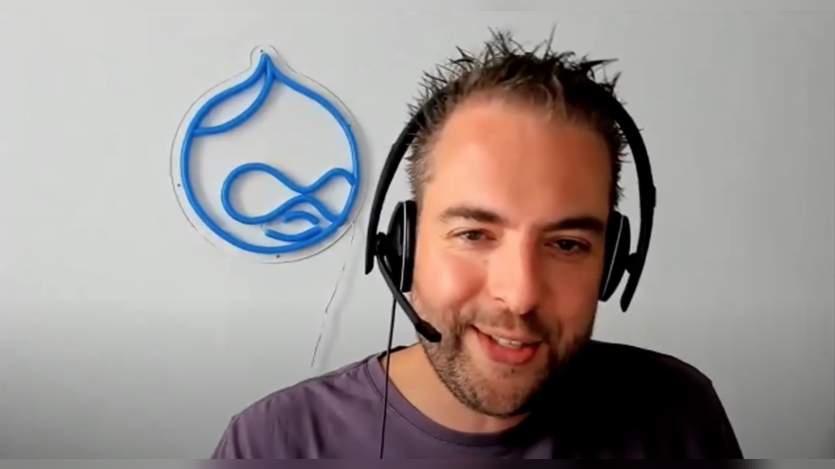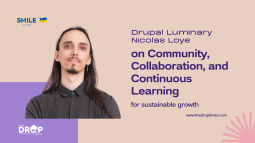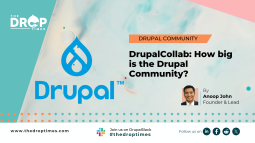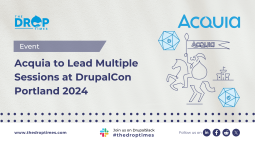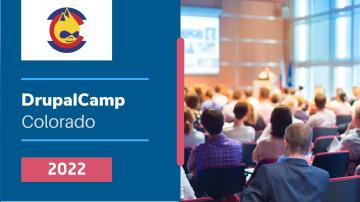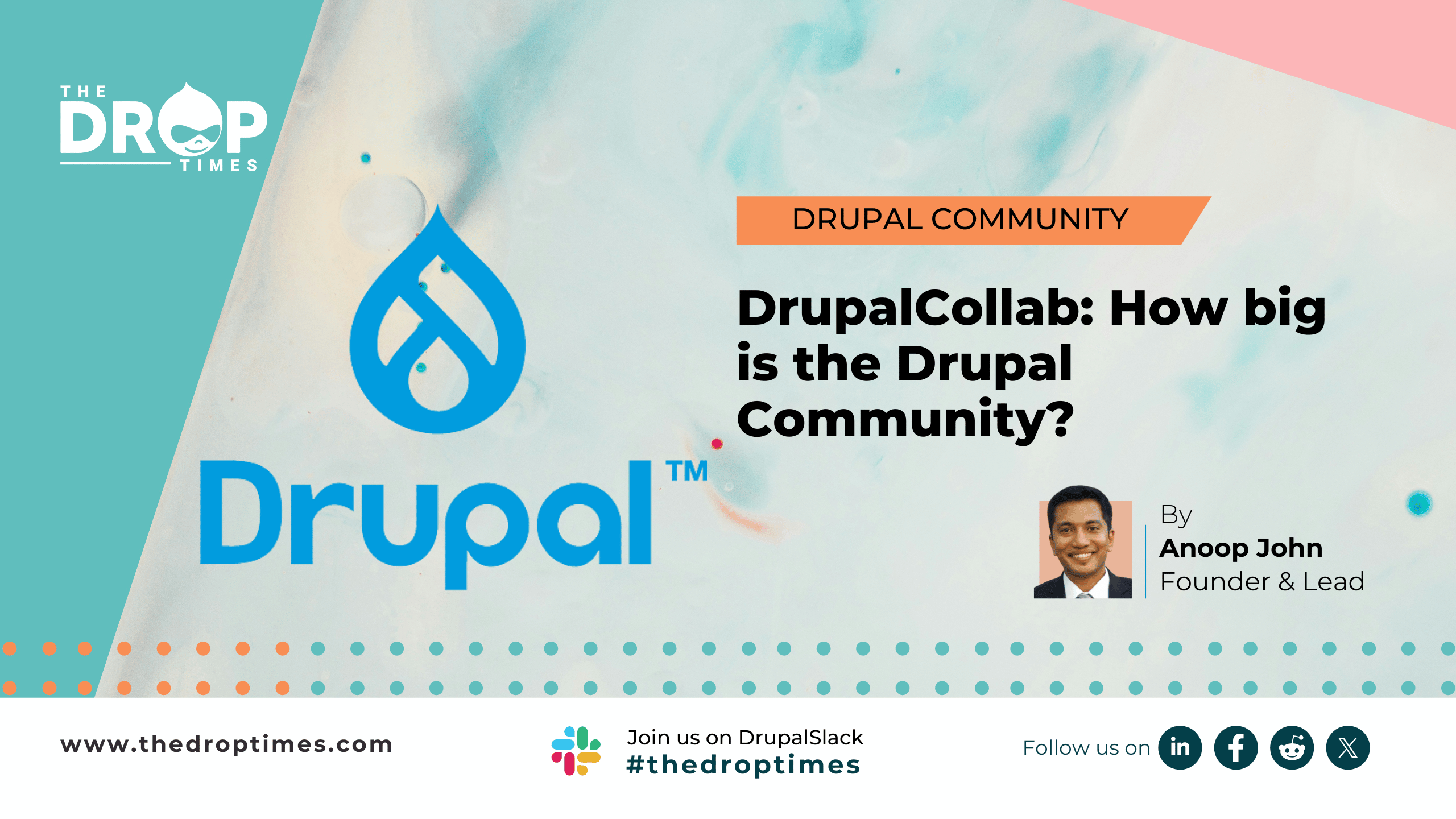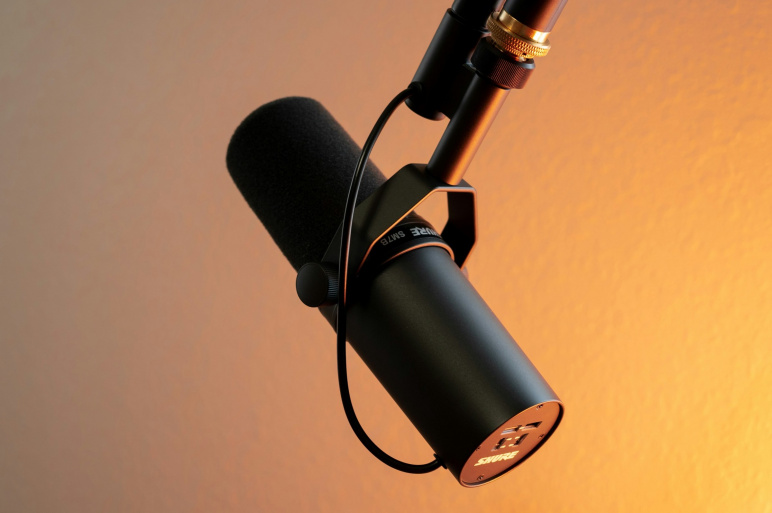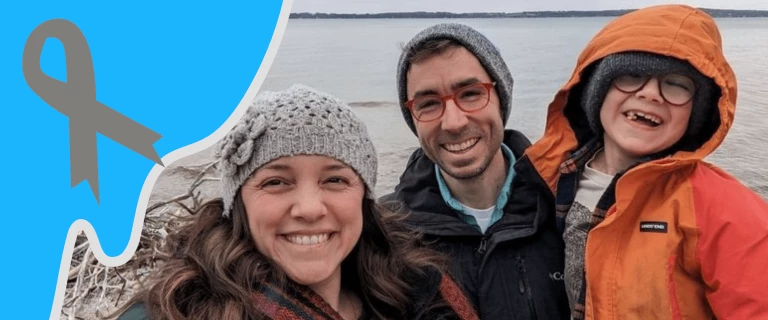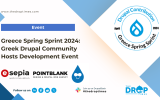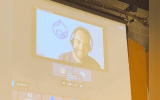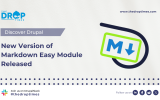Whether Backdrop Is Welcome at DrupalCons?
The question is direct and blunt. It might be why to ease things up or to remove lousy blood, the acting executive director of Drupal Association, Angie Sabin, watered it down a little to reframe it as a general question towards the acceptability of open source community participation at DrupalCons.
The interesting turn of events that led to a hurried and well-thought-out response from the Drupal Association started with a tweet sharing The Drop Times’ report about a prerecorded interview of Dries, webcasted as the opening session for Drupal Camp Colorado.
A Twitter handle going by the name, Nonprofit Backdrop, tweeted our story under which, Backdrop community members Tim Erickson and Jen Lampton reacted with frowns.
Tim said (he thinks) ‘that many in the BackdropCMS community have been very unclear about whether or not a BackdropCMS session would be welcome or accepted’ at DrupalCon.
Jen, a co-founder of the project, reacted to it by stating that some of them ‘have been very clear: every Backdrop session submitted for DrupalCon - to date - has been rejected by the DA (even when accepted by organizers). (She) would love to see this change!’
A call for a clear and public statement from the Drupal Association on the question surfaced.
Angie Sabin, the acting ED of Drupal Association, chipped in and replied that she didn’t have full insight into past decisions. She is working on it and will clarify the association’s current position asap. She also invited them for a direct chat.
Within hours, Drupal Association came up with a statement titled, ‘Open source community participation at DrupalCons,’ which is available here.
The statement reads:
Many people and organizations in our community contribute to and/or work with multiple projects that overlap with Drupal, including Wordpress, Backdrop CMS, etc. We welcome all who accept our Drupal Code of Conduct to attend and participate in DrupalCon and its events.
DrupalCon sessions are reviewed and accepted by a volunteer panel. People are welcome to submit any Drupal-related sessions they think will interest attendees. We can’t accept all submissions due to the large number submitted. Typically only about 20% of submissions can be accepted. The most successful are topical to themes/timely for the audience. No one is penalized for sessions not accepted.
Angie Sabin has also made it clear that for further questions, (anybody) can contact her directly via email: [email protected]
Rachel Lawson, senior manager (community strategy) at the United Nations Digital Impact Alliance, interviewed Dries Buytaert on behalf of the camp organizers at Drupal Camp Colorado. Ms. Lawson asked Dries (whether) there (is) a chance the Drupal community might officially recognize something like Backdrop CMS. The Drupal creator’s answer to that question was the topic of discussion in both the Drupal and the Backdrop developer circles.
You can watch the 40-minute interview from the youtube video embedded below. The debate mentioned in this story can be found from 19:50 in the video timeline.
A mostly verbatim transcript of the mentioned discussion is appended below. Slight editorial freedom has been exercised.
Rachel Lawson: Generally, modernizing Drupal is, for a lot of people, hugely important. It brings us many more opportunities with the product we wouldn’t have if we stayed still. However, we have a question about the fact that—that’s not for everyone—because not everyone needs new stuff, which is understandable. So we had a question. We know that many Drupal 7 sites are not interested or able to upgrade to Drupal 9 and presumably after that 10. Large numbers of them are moving to other platforms or services. It might be that they’re more appropriate. That’s cool; I don’t see a problem with that. Is there a chance the Drupal community might officially recognize something like Backdrop CMS as one possible option for where those people can work with the hope of keeping more people in a wider Drupal family? Would that make sense, and that be something you think?
Dries Buytaert: I think that’s the question about recognizing Backdrop CMS more. So um, trying to think through the answer.
First of all, Backdrop is a fork of Drupal, right? And you have healthy forks and unhealthy forks, so I’m not saying it’s a bad fork, just to be clear (laughing).
But it’s a fork of Drupal, and it’s been around for a long time now.
The main reason, as I understand it right now, is that it was created out of frustration with (the lack of) backward compatibility, and this idea Drupal should be easier to use. We started adding many developer features to Drupal 8, so maybe the second principle for the fork is that Drupal shouldn’t be just for developers. I mean, that’s my recollection of it, um maybe. Maybe it’s incomplete or wrong, but that’s what I remember, and I think it’s true, right?
At the time, we didn’t care about backward compatibility; we cared about breaking API, so we could move forward and innovate, and it’s also true that Drupal 8 was very heavy on developer improvements. We introduced Symfony, for example, and another thing—Composer, I think—was also in Drupal 8.
So it definitely made it harder, you know, for people to use and adopt Drupal and also easier for developers, in other ways, but anyhow I just wanted to think out loud (laughs) like for myself maybe like why Backdrop was created.
First of all, I’m very comfortable with them being around. They (Backdrop developers) often attend DrupalCon. There are often sessions at DrupalCon, so I feel like we embrace them if you want to use that word. We’re not trying to block them out or anything. And I think they provide a very valuable service. I mean, I like what they do, right? Like a lot of people have got value from it, like you know, because they made it easier to stay on Drupal 7, and there’s maybe less disruptive changes, so the upgrades are easier. All good stuff, as far as I’m concerned. So in a way, I would say, they are part of the family, I think. I think of it that way. I mean, though some of these reasons, we’ve started to address and address right like we have changed our policies around backward compatibility.
Rachel Lawson: As we’ve done 8, 9, 10, yeah
Dries Buytaert: That’s right, so now Drupal is also easy to upgrade, and we continue to make it easier to upgrade to like we’re working on automated updates, for example. We’re also working on things like project browser, which will help make it easy to find and discover modules and tie into the automated updates. We’re working on ‘site recipes.’ In my keynote, I still call it uh starter templates, but we’ve since -kind of- evolved the name to recipes which also makes it pretty cool.
Rachel Lawson: I didn’t know that because I’ve not been as attached recently.
Dries Buytaert: Yeah, but I mean, long story short, we’ve been focused on making it easier to learn Drupal and use Drupal and maintain and upgrade Drupal. So in a way, these original reasons why Backdrop was created, I would say, we’ve also come around and recognized the importance of backward compatibility and focusing on the non-developer experience as well. So you know, (stressing) which is good, I think. I don’t know if that answers your question. Was there another question or?
Rachel Lawson: I think there was something along the lines of seeing how Backdrop fits within the whole ecosystem, and I think, yeah, you’ve got hits and pieces in there. But also, I think it is interesting how you then also discussed how some of the reasons for Backdrop probably are relevant now, but maybe as Drupal continues to go 9, 10, 11, whatever number game we use in the future, and it’s something that we’re always thinking about is well, why did that happen? How do we avoid that being painful for people? So that’s great, yeah.
Dries Buytaert: I mean, I think, it happens. It happened at a time when we didn’t—you know—it was hard to find the balance between these different things, and I’m actually glad that we introduced Symfony and Composer and all of these things. I think it has paid dividends. It has really been beneficial in many ways. And I would say like Drupal probably has more momentum than—you know—Backdrop, right? and you know we see contin (sic), I don’t know, I haven’t really paid attention, to be honest, to all of the innovations going into Backdrop. And again, I don’t mean that in a bad way, but like I’m happy where Drupal is, and I’m happy where Drupal is going. I’m also fine if people want to stay on Drupal 7 and go with BackDrop, that’s fine too, like I’m all for keeping people in the family, you know.
Rachel Lawson: Yeah. Completely. I get it. I still want to see people at DrupalCon. I’m here at Drupal Camp Colorado as well. Jen’s here too. So we’re going to be chatting later. So yeah, absolutely, um, but that’s interesting.
Note: The vision of this web portal is to help promote news and stories around the Drupal community and promote and celebrate the people and organizations in the community. We strive to create and distribute our content based on these content policy. If you see any omission/variation on this please let us know in the comments below and we will try to address the issue as best we can.



